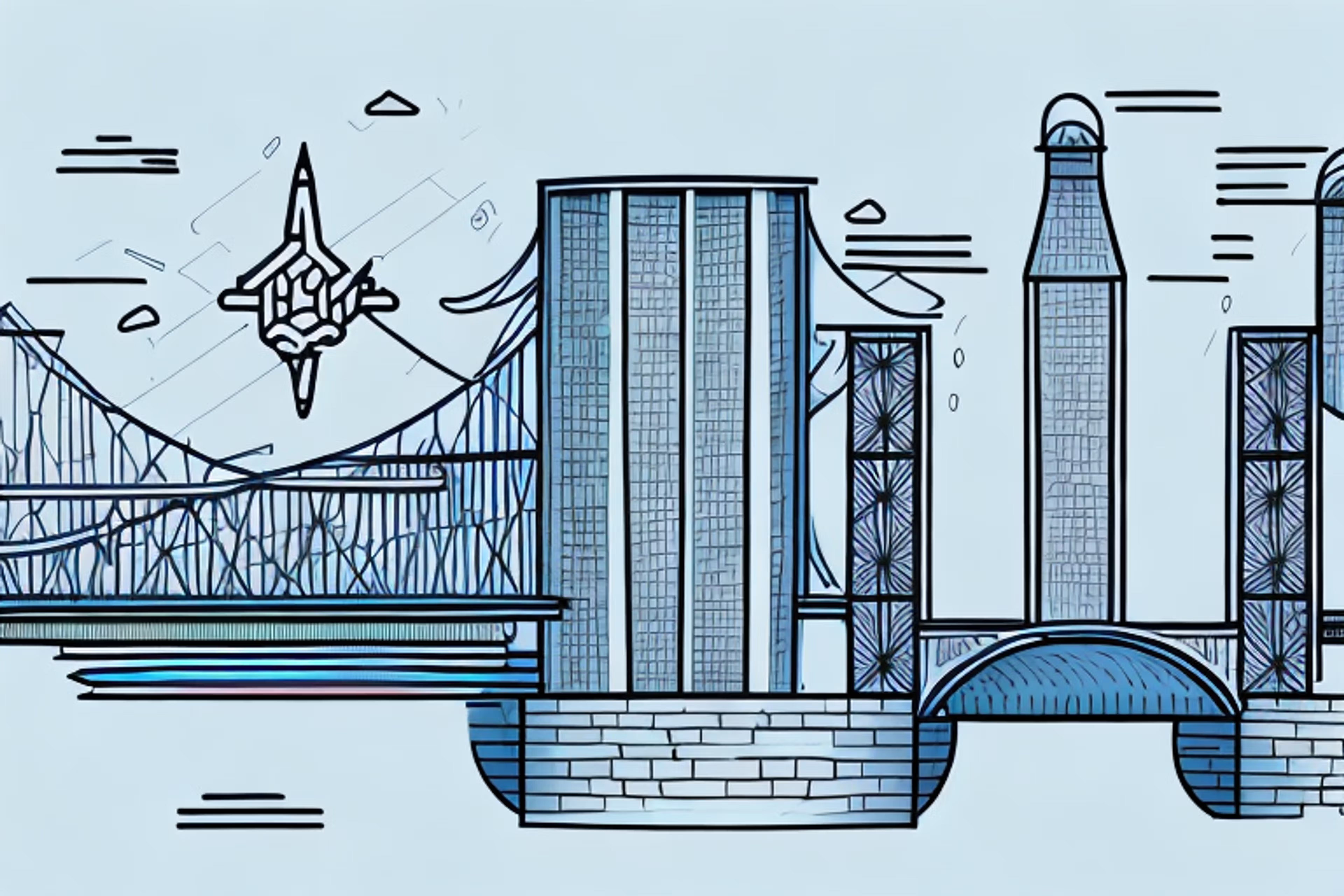Making the Move: How to Transition from the Automotive Industry to Management Consulting
Are you considering a career change from the automotive industry to management consulting? This article provides valuable insights and tips on how to successfully make the transition.
Posted April 10, 2025

Table of Contents
Free Event

Featuring Mattijs B.
Crack the MBB Consulting Case
Starting Wednesday, April 16
4:30 PM UTC · 30 minutes

Featuring Mattijs B.
Are you an automotive professional looking to take the next step in your career? Are you interested in the fast-paced, intellectually challenging field of management consulting? Making the transition from one industry to another can be intimidating, but with the right mindset, skills, and preparation, it is possible. In this article, we will guide you through the process of transitioning from the automotive industry to management consulting.
Why Management Consulting is a Great Career Option for Automotive Professionals
While the automotive industry is no doubt important, management consulting offers a unique opportunity to work with a variety of industries and clients. You will be exposed to a range of business problems and be tasked with finding creative solutions. Additionally, management consulting offers a fast-paced and competitive environment, making it an ideal choice for driven automotive professionals seeking a challenge.
Another advantage of pursuing a career in management consulting is the opportunity to develop a diverse skill set. As an automotive professional, you may have specialized knowledge in areas such as engineering or supply chain management. However, in management consulting, you will be exposed to a wide range of business functions, including finance, marketing, and strategy. This will allow you to develop a more well-rounded skill set and become a more valuable asset to future employers.
Furthermore, management consulting can offer a high level of job satisfaction. As a consultant, you will have the opportunity to work on projects that have a significant impact on a company's success. You may be tasked with developing a new product strategy or improving operational efficiency. Seeing the results of your work can be incredibly rewarding and provide a sense of fulfillment that may be lacking in other careers.
Identifying Transferable Skills from Automotive Industry to Management Consulting
When making the transition from automotive to management consulting, it is important to identify and highlight your transferable skills. These include project management, problem-solving, data analysis, and collaboration. In the automotive industry, you have likely developed skills in areas such as supply chain management, logistics, and operations. These skills translate well to management consulting, where you will be working on complex business problems.
Another important skill that can be transferred from the automotive industry to management consulting is leadership. As a manager in the automotive industry, you have likely led teams and made important decisions that have impacted the success of the company. These leadership skills can be applied to management consulting, where you will be leading teams of consultants and working with clients to achieve their goals.
Additionally, the automotive industry is constantly evolving and requires individuals to stay up-to-date with the latest technologies and trends. This adaptability and willingness to learn can also be valuable in management consulting, where you will be working with clients in various industries and need to quickly understand their business and industry-specific challenges.
Developing a Comprehensive Plan for Transitioning to Management Consulting
Making the move to management consulting requires a clear plan. Begin by researching the industry, understanding the landscape, and identifying potential areas of interest. Network with current management consultants, attend industry events, and consider joining an industry association. It is also important to update your resume and cover letter to highlight your transferable skills and experience. Finally, consider enrolling in a training or professional development program to enhance your skills and knowledge.
Another important aspect to consider when transitioning to management consulting is to gain practical experience. Look for opportunities to work on consulting projects, either through internships or freelance work. This will not only give you hands-on experience but also help you build a portfolio of work to showcase to potential employers. Additionally, consider taking on leadership roles in your current job or volunteer work to demonstrate your ability to manage and lead teams. These experiences will be valuable in the consulting industry where leadership and project management skills are highly valued.
Networking Strategies for Breaking into the Management Consulting Industry
Networking is key when it comes to breaking into the management consulting industry. Attend industry events and conferences, join relevant LinkedIn groups, and connect with alumni from your university who are currently working in management consulting. It is also a good idea to reach out to consulting firms directly and ask about potential opportunities.
Another effective networking strategy is to participate in case competitions. Many consulting firms sponsor these competitions, and they provide an excellent opportunity to showcase your problem-solving skills and network with industry professionals. Additionally, consider attending career fairs and information sessions hosted by consulting firms to learn more about the industry and make connections.
It's important to remember that networking is not just about making connections, but also about building relationships. Take the time to follow up with people you meet, send thank-you notes, and stay in touch. Building a strong network takes time and effort, but it can pay off in the long run when it comes to finding job opportunities and advancing your career in management consulting.
Preparing for Interviews: Tips and Techniques for Success in Management Consulting
Interviews in the management consulting industry are notoriously challenging. Be prepared to answer case-based questions that test your problem-solving and analytical skills. Practice with online resources and mock interviews to help you prepare. It is also important to research the company and the specific role you are applying for to show that you are a good fit for the organization.
Another important aspect to consider when preparing for management consulting interviews is to be familiar with the latest industry trends and news. Stay up-to-date with the latest developments in the industry by reading relevant publications and attending industry events. This will not only help you answer questions more confidently, but also demonstrate your interest and commitment to the field. Additionally, make sure to dress professionally and arrive early to the interview to show that you are serious about the opportunity.
Overcoming Challenges in the Transition from Automotive Industry to Management Consulting
Making the transition to a new industry can be difficult. It is important to be patient and persistent in your job search. Don't get discouraged if the process takes longer than you expected. Focus on developing your skills and building your network. Be open to feedback and use it to improve your approach.
One of the biggest challenges in transitioning from the automotive industry to management consulting is the difference in work culture. The automotive industry is known for its hierarchical structure and emphasis on technical expertise, while management consulting values collaboration, creativity, and strategic thinking. It is important to adapt to this new culture by being open to new ideas and approaches.
Another challenge is the need to learn new skills and knowledge. Management consulting requires a different set of skills than the automotive industry, such as data analysis, project management, and presentation skills. It is important to invest time and effort in learning these skills through training programs, online courses, or mentorship.
How to Leverage Your Automotive Experience to Excel in Management Consulting
Your experience in the automotive industry will be a valuable asset in management consulting. Use your knowledge of supply chain management, logistics, and operations to your advantage. Additionally, your experience working in a fast-paced and competitive environment will serve you well in management consulting.
Furthermore, your experience in the automotive industry has likely given you exposure to a variety of stakeholders, including suppliers, manufacturers, and dealerships. This experience can be leveraged in management consulting to help clients navigate complex stakeholder relationships and develop effective communication strategies. Your understanding of the automotive market and consumer behavior can also be applied to other industries, providing a unique perspective and valuable insights to clients.
Understanding the Key Differences between the Automotive Industry and Management Consulting
While there are similarities between the automotive industry and management consulting, there are also important differences to be aware of. In management consulting, you will be working with a variety of clients and industries, and will need to be adaptable and comfortable with ambiguity. Additionally, the work-life balance in management consulting can be different from the automotive industry, with long hours and frequent travel.
On the other hand, the automotive industry is more focused on the production and sale of vehicles. This industry requires a deep understanding of engineering, manufacturing, and supply chain management. In addition, the automotive industry is heavily regulated, with strict safety and environmental standards that must be met.
Another key difference between the two industries is the level of innovation and technology involved. Management consulting often involves the use of cutting-edge technology and data analysis to solve complex business problems. In contrast, the automotive industry is currently undergoing a major shift towards electric and autonomous vehicles, which requires a different set of skills and knowledge.
Building a Strong Personal Brand as an Automotive Professional Entering the Management Consulting Field
Building a strong personal brand is important when making the transition to management consulting. Develop a reputation as a problem-solver and strategic thinker. Participate in industry events, write thought-leadership articles, and build your online presence through social media and a personal website.
Navigating the Recruiting Process: A Guide for Automotive Professionals Seeking Careers in Management Consulting
The recruiting process in management consulting can be complex. Research the different consulting firms and identify those that align with your skills and interests. Apply to multiple firms and be prepared to be patient throughout the process. Finally, always be professional and respectful in your interactions with recruiters and hiring managers.
Exploring Different Types of Management Consulting Roles that Align with Your Automotive Background
There are a variety of management consulting roles that may align with your automotive background. These include supply chain consulting, operations consulting, and strategy consulting. Research each type of consulting and determine which interests you the most.
Building Your Skill Set: Training and Professional Development Opportunities for Transitioning Professionals
As a transitioning professional, it is important to continue building your skill set. Consider enrolling in a training or professional development program to enhance your knowledge of management consulting. Additionally, seek out opportunities to work on cross-functional teams to broaden your experience.
Evaluating Prospects: Researching Companies and Opportunities in the Management Consulting Industry
Researching consulting firms and opportunities is an important part of the job search process. Consider factors such as company culture, size, and reputation. Additionally, research the specific role you are applying for and determine if it aligns with your skills and interests.
Creating a Winning Resume and Cover Letter When Transitioning from Automotive Industry to Management Consulting
When transitioning from the automotive industry to management consulting, it is important to update your resume and cover letter to highlight your transferable skills and experience. Use strong action verbs and quantifiable results to showcase your accomplishments. Additionally, tailor your resume and cover letter to the specific role and company you are applying for.
Making the move from the automotive industry to management consulting can be challenging, but with the right mindset and preparation, it is possible. Use the information and strategies outlined in this article to guide you through the transition process. Good luck in your new career!


















